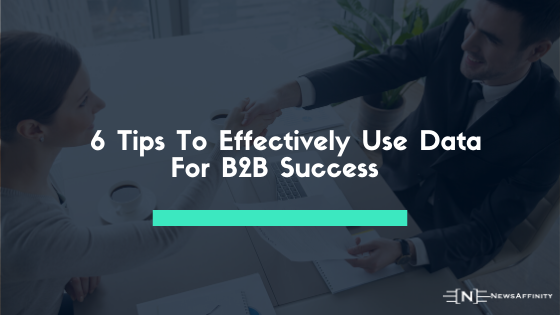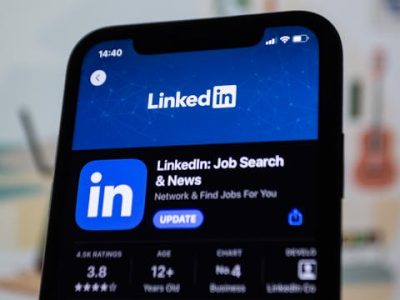In the modern age, technology is everywhere such that there is technology within technologies like data and software. Business data, according to Simplicable, is a digital asset that could be used by companies to “support strategy, decision making, and operations”.
Using big data is generally thought of as only a business-to-consumer (B2C) marketing tactic. Actually, when used correctly it can be very helpful for your business-to-business (B2B) company, to the point of being the make or break of it. So, no matter what kind of company you run, data can be very beneficial in many aspects.
Here are some tips to use data effectively to generate B2B success:
- Define your business goals
Success is the achievement of goals, after all and it is important because defining your goals will help you decide what kind of business data you actually need. B2B data used for sales purposes is much different than those you need for customer retention, for example, although those two aspects may be within the same realm of business.
Create clear goals so you can allocate your data resources efficiently and effectively. Once a goal is envisioned, you can map the route to that goal better and decide what pieces of data you need to help you obtain the goal.
- Source data that is of quality
Big data is called “big” for a reason – there is a lot of data out there. You need to keep in mind that not every single piece of data is relevant for your needs (refer back to tip #1). It will definitely take a lot of time to research which data is ‘good’ (for your B2B needs) and which isn’t and if you have the time, resources and patience to do so, go for it.
“Quality” data, defined as per market, is “regularly cleaned, validated, and updated to improve your ROI (rate of interest)”. Old leads may come in handy but are of no use if the email addresses attached ping back your emails, so data cleansing helps make sure that everything is up to date.
What is data cleansing? Read onto tip #3.
3. Cleanse your business database
Data cleansing is the process of checking your business data records and/or removing inaccurate data or updating it. This could be like a change in your client business’ executive (so the relevant email might have changed) or company address for example. Wouldn’t it be a good idea to clean your business’ email list?
B2B data actually has a relatively short ‘shelf life’ and needs to be updated often. An estimated 30% of data becomes out of date within 12 months, so it is a good idea to constantly check on the data you have and do a little Spring cleaning. B2B Marketing also has some handy tips for effective data cleansing, if you need some.
- Use data across all areas of business…
Contrary to what you might think, data isn’t only relevant to making B2B sales decisions. You could also use data for internal company growth and development purposes. Recruiterbox.com suggests that human resources (HR) teams could use their company’s internal data to provide more accurate information on employee performance or satisfaction – annual reviews could be a lot more constructive!
Sales and marketing departments can use data to project inwards in order to gain more success outwards. Data can show what tactics work (and what doesn’t), it can show which of your products are doing well (or not), and it could provide you with internal customer trends. Data is multifaceted and carries many benefits, so use it to the best of its capabilities (internally and externally) and you’ll most definitely find success waiting at the finish line.
5 …And use it wisely
Business data, with the intention to generate leads and sales, should be used to personalize your ‘plan of attack’. Many marketers believe that the customers will dismiss a prospective seller because their very first interaction wasn’t personalized. First impressions are everything when it comes to B2B sales and here is where data can help.
In combination with tip #4, data, and more specifically intent data, should be used by your marketing and sales teams to design effective strategies for outward success. Use data to figure out if a company actually needs your product and then tell them why your product can help them achieve success. Personalization is key, and there’s nothing more personal than data.
- Don’t be afraid to get help
Outsourcing may seem like an unnecessary thing to add to your company expenses, but it is definitely a cheaper option compared to running things internally. Data-related tasks require a lot of training which ultimately means that you’ll be spending plenty of valuable resources, namely money and time, in doing so.
If you can afford it… great! Otherwise, there are many companies out there that offer data-related services whether it is data gathering, creating valuable business email lists, or data cleaning – you’ll find someone to give you a hand for a fair price. Time is money after all, so save it by outsourcing expertise and concentrate your manpower on generating sales and maintaining relationships with your clients to generate continued success.

















Comments